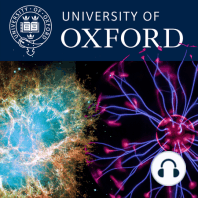41 min listen

Gravitational radiation: an overview
Gravitational radiation: an overview
ratings:
Length:
69 minutes
Released:
Nov 28, 2023
Format:
Podcast episode
Description
Prof Steven Balbus - Gravitational radiation: an overview General Relativity, Einstein’s relativistic theory of gravity, predicts that the effects of gravitational fields propagate across the Universe at the speed of light. This is very much in the spirit of Maxwell’s theory of electrodynamics, the first fully relativistic theory to enter physics. Einstein’s theory is more complicated, however, because waves of gravity are themselves a source of gravitational radiation! But when the waves are small in amplitude, as they are in contemporary observations, their effects may be understood in terms of concepts very familiar to us: they cause small tensorial distortions of space, carrying energy and angular momentum which can measurably change the orbits of binary stars. First studied by Einstein in 1916, gravitational waves were detected directly in 2015, after a century of technical advancement allowed these incredibly tiny (a fraction of a proton radius!) wave distortions to be measured. In the last eight years, gravitational wave detection has become a powerful tool used by astrophysicists to reveal previously unknown populations of black holes, and perhaps something about the earliest moments of the birth of the Universe.
Released:
Nov 28, 2023
Format:
Podcast episode
Titles in the series (86)
Cosmology from General Relativity: Members of the Rudolf Peierls Centre for Theoretical Physics hosted the eighth Saturday Morning of Theoretical Physics on 19 September 2015. Talk 3 by Pedro Ferreira. by Theoretical Physics - From Outer Space to Plasma